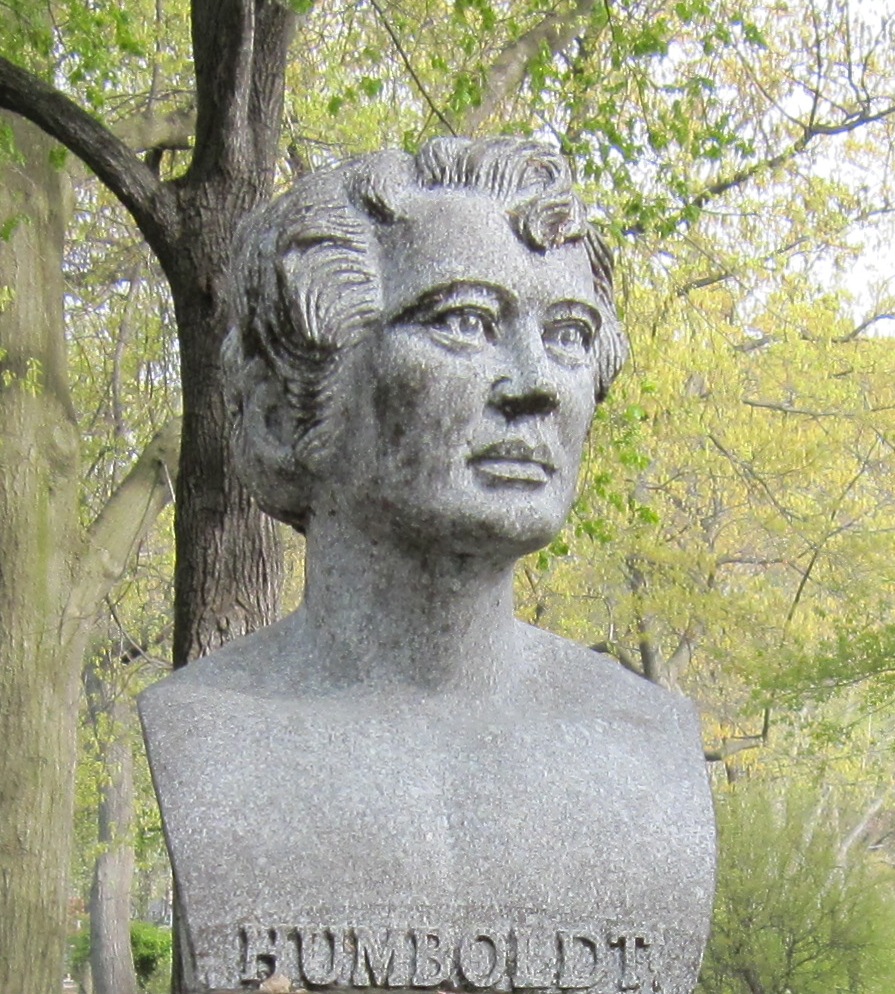 Modern-day denizens are more likely to associate the word “Cosmos” with Carl Sagan, the host of the 1980’s public television series of that same name.
Modern-day denizens are more likely to associate the word “Cosmos” with Carl Sagan, the host of the 1980’s public television series of that same name.
In the 19th century, however, Cosmos would have been associated instantly with Alexander von Humboldt.
The book jacket of The Passage to Cosmos, by Laura Dassow Walls, describes this “explorer, scientist, writer, and humanist” as:
… the most famous intellectual of the age that began with Napoleon and ended with Darwin. With “Cosmos” [1845], the book that crowned his career, Humboldt offered to the world his vision of humans and nature as integrated halves of a single whole. … Humboldt’s science laid the foundations for ecology and inspired the theories of his most important scientific disciple, Charles Darwin. In the United States, his ideas shaped the work of Emerson, Thoreau, Poe, and Whitman. They helped spark the American environmental movement through followers like John Muir and George Perkins Marsh. And they even bolstered efforts to free the slaves and honor the rights of Indians.
In 1869, across the United States, Humboldt centennials honored Humboldt’s 100th birthday (he had died ten years prior, in 1859). There were public gatherings and speeches and operatic arias. Walls notes: “The proceedings and reports of the 1869 Humboldt centennials show a country still fighting the battles of the late 1700s: was the United States a cosmopolitan nation based on reason, enlightenment, and liberation from superstition, as Jefferson had believed? Or was it still a Puritan stronghold resting on God’s word and providential design? A wide spectrum of positions had opened up around Humboldt, from conservatives upset with his failure to acknowledge the creator, to moderates like Agassiz and Bachman who appropriated him as a Christian in spirit if not in doctrine, to freethinking Transcendentalists like Emerson and Higginson, to radical materialist atheists like Heinzen and Ingersoll.” (p. 318)
Darwin’s Origin of Species came along in 1859, but by 1880, even Darwin’s theory of natural selection were subsumed by alternate theories, and wouldn’t re-emerge until the early twentieth century.
In her epilogue to Passage to Cosmos, Walls is eloquent:
Humboldt’s Cosmos is about regrounding imagination, about reimagining science, about reminding us that humans are natural and nature is human. … We have no language for speaking of humans and natures as a single, law-governed, dynamically interactive and reflective whole. So we face the future, this peril we have precipitated, shorn of tools and of the organs of perception that tools provide. Cosmos was the fabric that Humboldt spent a lifetime weaving, the one fabrication that, he thought, would make all our technologies and visions and hopes and poems speak to each other. Like groundwater, it’s still there under our feet …
(pp. 316-317)
